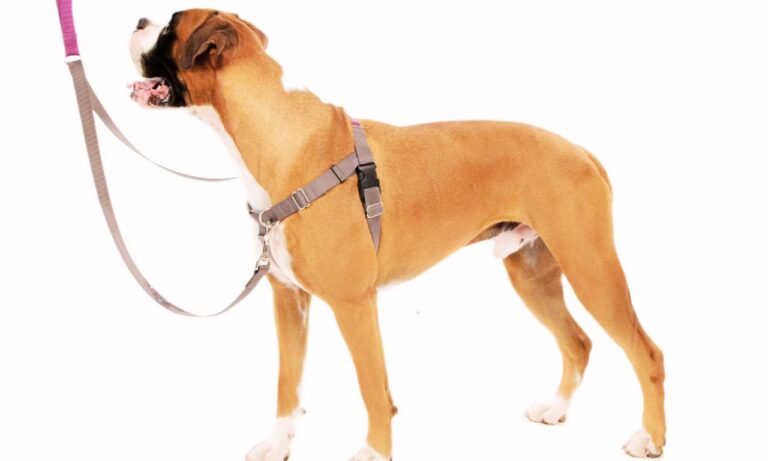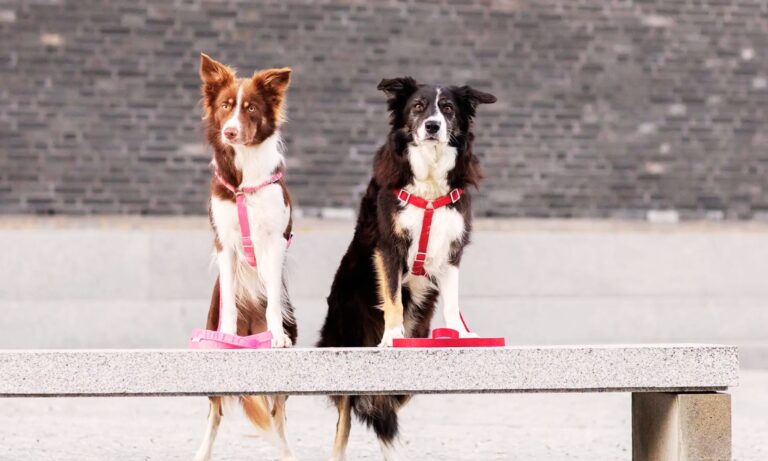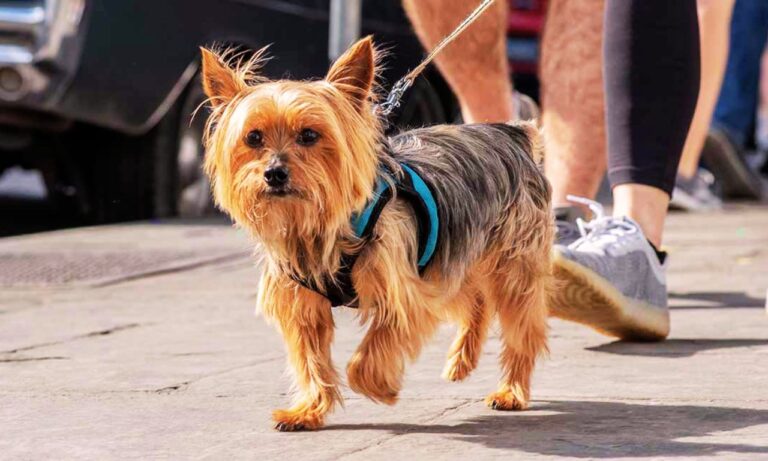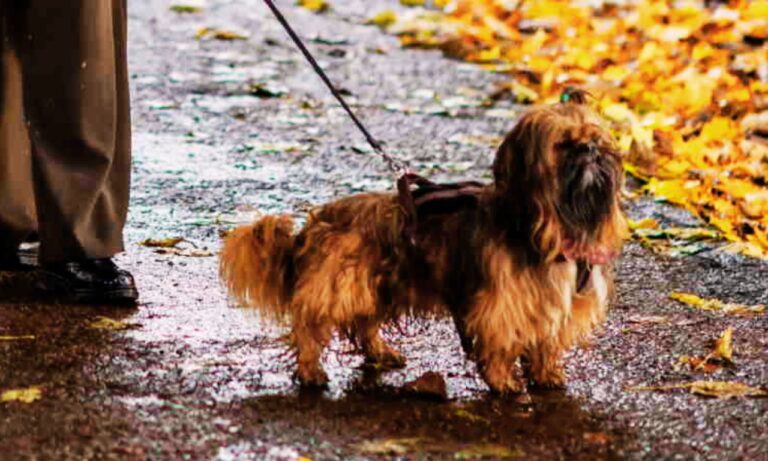Belgian Shepherds are large, versatile, and active dogs, known for their intelligence, agility, and protective nature. They come in four varieties: Groenendael, Tervueren, Malinois, and Laekenois, but regardless of the variety, the collar size required depends on the dog’s age, weight, and neck size. So, what is the correct collar size for a Belgian Shepherd?
Let’s explore the appropriate collar size for these powerful dogs and how to ensure a proper fit. For a step-by-step guide on how to wear collar to an Affenpinscher, check out this detailed article to ensure a comfortable and secure fit for your dog.
Blog Highlights
ToggleCorrect Collar Size for a Belgian Shepherd
For Belgian Shepherds, the average collar size typically ranges from 18 to 24 inches (46 to 61 cm) in circumference. This range fits most adult Belgian Shepherds, which weigh between 60 to 75 pounds (27 to 34 kg) for males and 60 to 70 pounds (27 to 32 kg) for females. Puppies and younger dogs may require smaller sizes, but it is crucial to adjust the collar as the dog grows to maintain comfort and safety.
For accurate sizing, always measure your dog’s neck carefully using a soft measuring tape. Make sure the tape is snug but not tight. You should be able to fit two fingers between the collar and the dog’s neck to ensure it is comfortable but secure. Check out the best dog collars for Border Collie to find durable, stylish, and comfortable options for your active dog.
Factors Affecting Collar Fit
- Neck Size: The neck size of a Belgian Shepherd can range from 16 to 24 inches, depending on the specific variety and the individual dog. The Malinois, for example, might require a slightly smaller collar size compared to the larger Groenendael. Always consider the breed and variety when purchasing collars.
- Weight: Most adult Belgian Shepherds weigh between 60 to 75 pounds, and collars for dogs in this weight range generally fit within the 18 to 24-inch collar size bracket. However, if your dog is slightly on the heavier side, you might need to size up slightly to ensure the collar isn’t too tight.
- Activity Levels: Belgian Shepherds are highly active dogs that often engage in intense physical activities. This can influence the type of collar material and size. If your dog is involved in work or training, a strong, durable collar made from high-quality materials like leather or reinforced nylon might be the best option to withstand wear and tear.
- Age: Puppies and adolescent Belgian Shepherds will need smaller collars, typically between 12 and 18 inches, depending on their growth stage. As they grow, ensure you periodically check the collar’s fit to prevent it from becoming too tight.
How to Measure a Belgian Shepherd’s Neck
To find the correct collar size, follow these steps:
- Use a Soft Tape: Take a soft measuring tape and wrap it around the dog’s neck, just below the base where the collar would naturally sit.
- Apply the Two-Finger Rule: Make sure the tape is snug but not too tight. You should be able to slip two fingers between the tape and your dog’s neck for the perfect fit.
- Add an Inch: Depending on the type of collar you plan to purchase (e.g., buckle or martingale), adding an inch can help ensure the collar is not too restrictive. For example, if your dog’s neck measures 20 inches, you may want to choose a collar that adjusts between 20 and 22 inches.
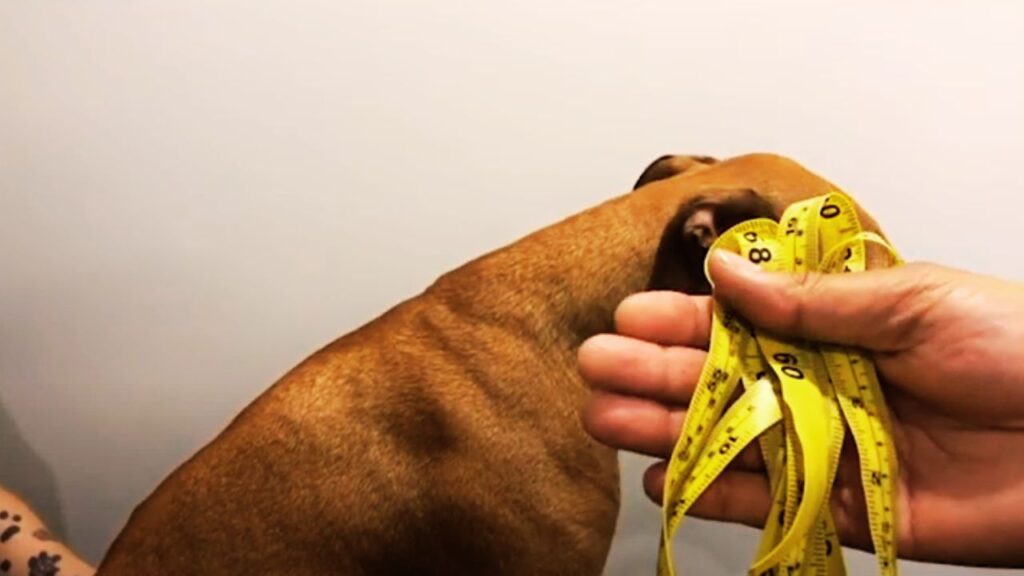
Types of Collars for Belgian Shepherds
Given the size and activity level of Belgian Shepherds, certain types of collars may be more suitable than others. For guidance on choosing the right collar size for an Airedale puppy, check out this detailed guide.

Here are a few options:
- Flat Collars: These are the most common type of collars and work well for everyday use. They come with an adjustable strap, allowing for a snug fit while providing the necessary control during walks. Opt for durable materials like leather or heavy-duty nylon.
- Martingale Collars: For Belgian Shepherds that pull on the leash, a martingale collar can be a safer option. These collars tighten slightly when the dog pulls, preventing the collar from slipping off without choking the dog. This type of collar is especially useful during training sessions.
- Head Collars: For extra control, head collars (such as a Halti) may be a good option. These collars go around the dog’s snout and attach behind the ears, allowing the handler to steer the dog without pulling at its neck. However, it’s important to train the dog to get used to this type of collar.
- Harnesses: For dogs that have respiratory issues or are prone to pulling, a harness might be a better option than a collar. Harnesses distribute the pressure across the dog’s chest and shoulders, reducing the strain on the neck.
Importance of the Correct Collar Fit
Ensuring your Belgian Shepherd’s collar fits properly is crucial for several reasons:
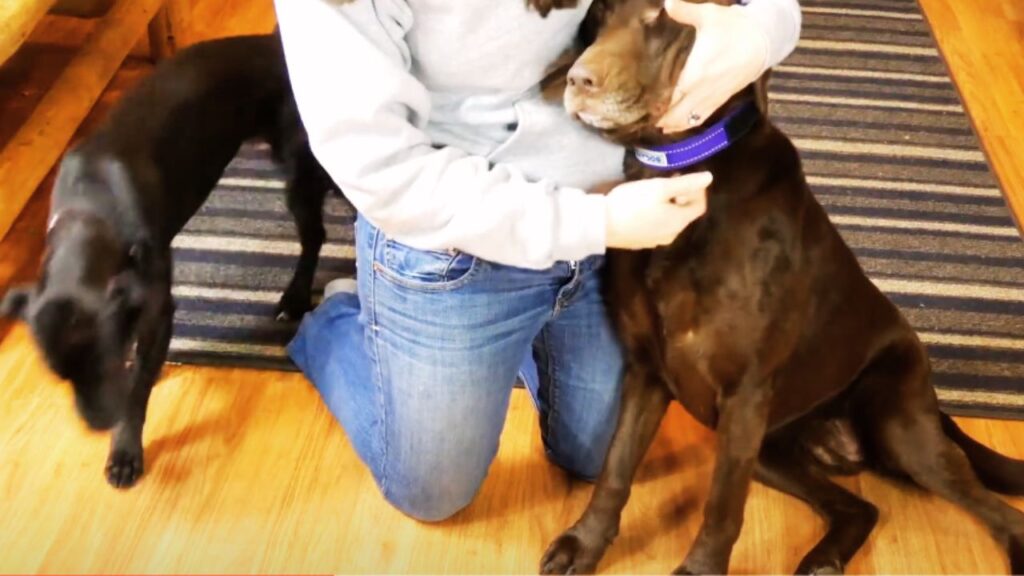
- Safety: A collar that is too tight can restrict breathing, cause chafing, and lead to discomfort, while a loose collar can slip off, putting your dog at risk of running away.
- Control: Belgian Shepherds are strong, agile dogs. A properly fitting collar gives you better control during walks, reducing the risk of the dog pulling or escaping.
- Comfort: Dogs that wear collars for long periods need a comfortable, well-fitting option to avoid skin irritation or fur damage.
Choosing the Right Collar Material for a Belgian Shepherd
When it comes to picking the perfect collar for your Belgian Shepherd, the material is just as important as the size. Belgian Shepherds are highly active and agile dogs, so their collars must be durable, comfortable, and suited for daily use. For insights on whether Airedales are good off-leash, explore this comprehensive article.
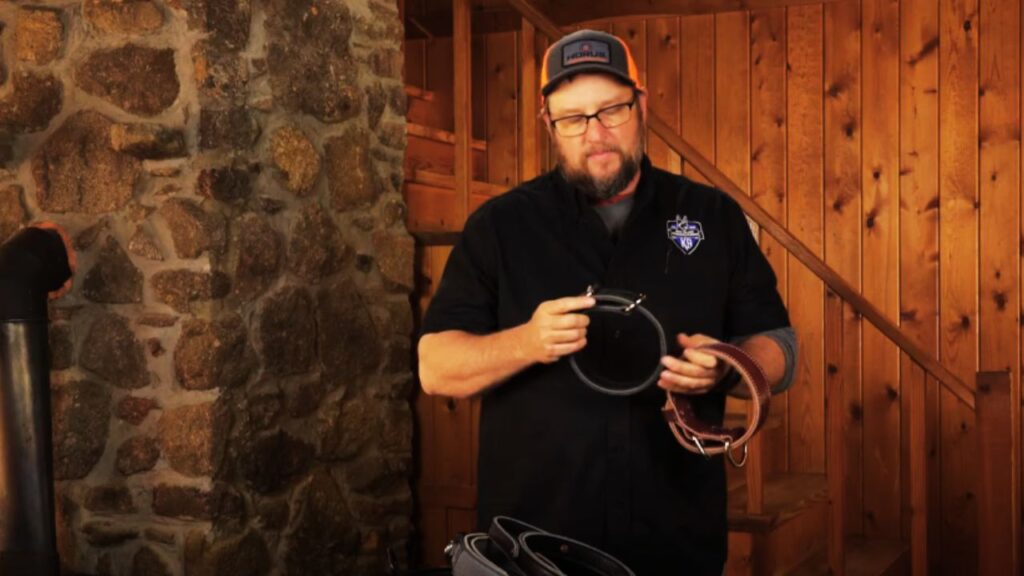
There are several popular materials for dog collars, each with its pros and cons, and the best choice depends on your dog’s needs, lifestyle, and preferences. In this section, we will explore the main types of collar materials and how they might suit your Belgian Shepherd.
1. Nylon Collars
Nylon is one of the most common materials used for dog collars due to its versatility and affordability. It is lightweight, strong, and easy to clean, which makes it an excellent choice for an energetic breed like the Belgian Shepherd. Since these dogs are often involved in vigorous activities, from running to agility training, a nylon collar can withstand the wear and tear of daily use.
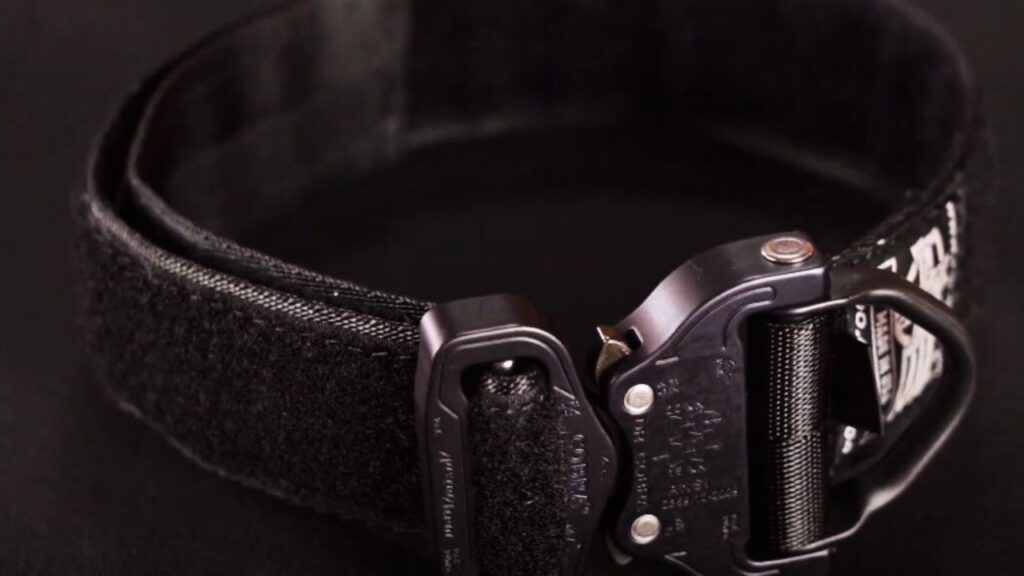
Advantages:
- Durability: Despite its lightweight nature, nylon is highly durable. A well-made nylon collar can handle the constant motion and strength of a large breed like the Belgian Shepherd.
- Weather Resistant: Nylon collars are resistant to moisture, which makes them ideal for outdoor use, especially if your Belgian Shepherd enjoys swimming or playing in the rain.
- Adjustability: Most nylon collars come with adjustable straps, allowing you to modify the fit as your dog grows or if its neck size fluctuates.
- Affordability: Nylon collars are usually more budget-friendly than collars made from other materials, which means you can replace them as needed without significant cost.
Disadvantages:
- Potential for Skin Irritation: Although durable, nylon can sometimes cause friction against a dog’s skin, especially during long periods of wear or if the collar is not adjusted properly. This is something to consider if your dog has sensitive skin.
- Staining: Since Belgian Shepherds are often outdoors, a nylon collar may absorb dirt or mud, and while it’s easy to wash, nylon can sometimes stain over time.
2. Leather Collars
Leather collars are often viewed as a more premium choice. They are strong, long-lasting, and can provide a touch of elegance. For a breed as distinguished as the Belgian Shepherd, leather collars offer both style and functionality.
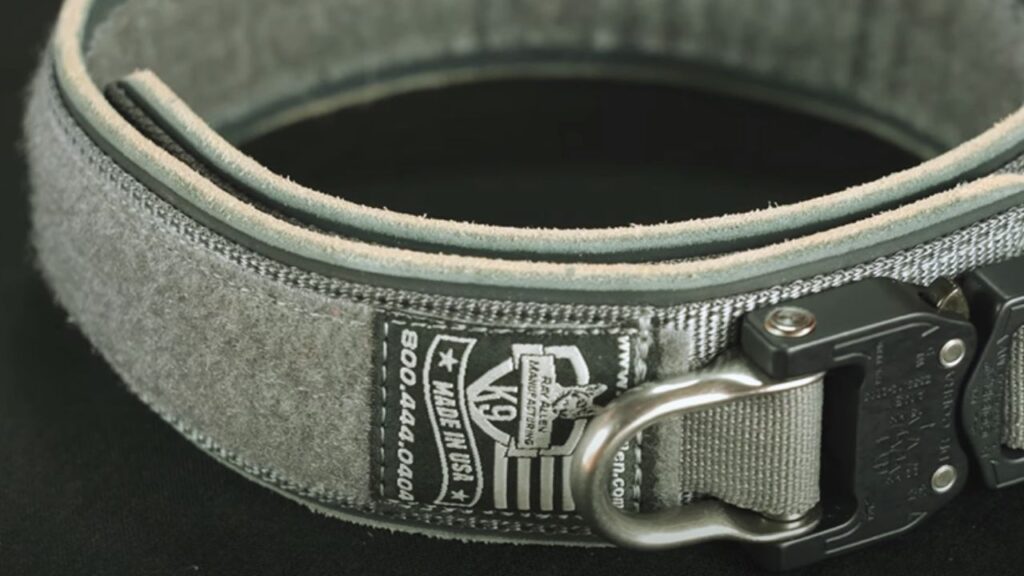
Advantages:
- Durability: Leather is extremely durable, making it ideal for strong breeds like Belgian Shepherds. High-quality leather can last for years with proper care.
- Comfort: Over time, leather becomes more supple and comfortable, molding to the shape of your dog’s neck. This makes leather a great choice for dogs that wear their collars for extended periods.
- Aesthetic Appeal: Leather collars often come in classic designs and offer an elegant appearance. If you want a collar that looks good on your Belgian Shepherd, leather is a solid option.
- Hypoallergenic: Leather is less likely to cause allergic reactions than synthetic materials, making it a better choice for dogs with sensitive skin.
Disadvantages:
- Price: Leather collars tend to be more expensive than nylon options, especially if they are made from high-quality, genuine leather.
- Maintenance: Leather requires regular care to maintain its condition. It must be cleaned and conditioned to prevent it from drying out or cracking over time. If exposed to water frequently, leather can become brittle, so it’s not ideal for dogs that enjoy swimming.
- Weight: Leather collars are often heavier than nylon, which may be uncomfortable for some dogs, especially younger or smaller Belgian Shepherds.
3. Biothane Collars
Biothane collars are made from a polyester webbing that is coated in either polyurethane or polyvinyl. They are a relatively new material in the dog collar market but have quickly gained popularity due to their strength and water-resistant properties. Discover the benefits of using a harness by reading this guide on should a Collie wear a harness.
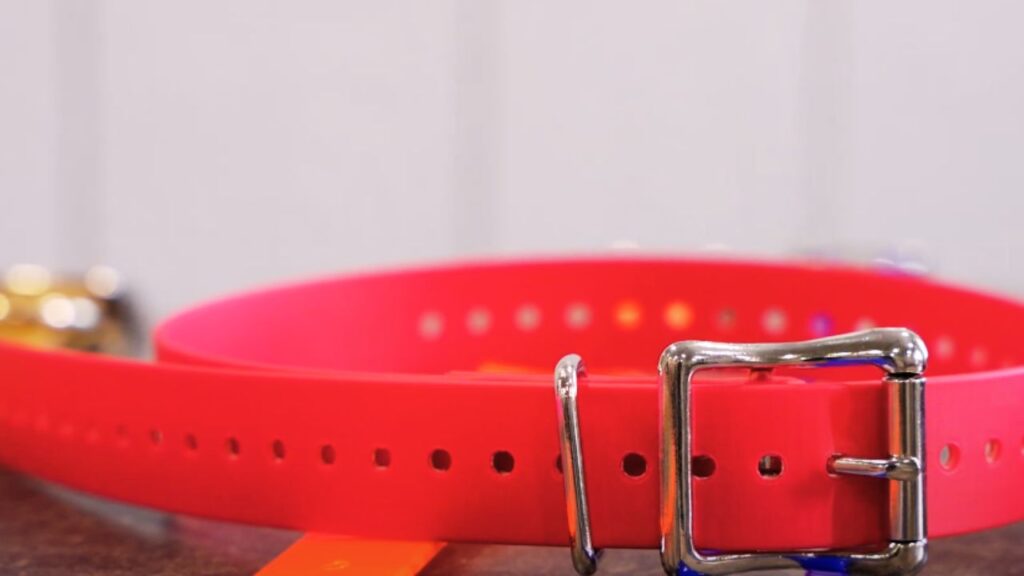
Advantages:
- Waterproof: Biothane collars are completely waterproof, making them perfect for Belgian Shepherds that love to swim or frequently get wet during outdoor activities. Unlike leather, Biothane does not absorb moisture or become damaged by water.
- Durability: This material is highly durable and can withstand rough conditions without cracking, breaking, or wearing down. This makes it a suitable option for dogs that are often involved in physically demanding activities.
- Easy to Clean: Biothane collars are incredibly easy to maintain. They do not retain odors and can be cleaned with just a quick wipe-down, which is perfect for active dogs that tend to get dirty.
- Flexible: Despite being durable, Biothane is also flexible, providing a comfortable fit for your dog.
Disadvantages:
- Aesthetic Limitations: Biothane collars are often more practical than stylish. While they come in a variety of colors, they do not have the same premium look as leather collars.
- Price: Although less expensive than premium leather, Biothane collars are typically more expensive than nylon options.
4. Chain Collars (Choke Chains and Prong Collars)
Chain collars, such as choke chains or prong collars, are often used for training purposes. These collars are designed to tighten when the dog pulls, providing immediate feedback during leash training. However, they can be controversial and should only be used under the guidance of a professional trainer.
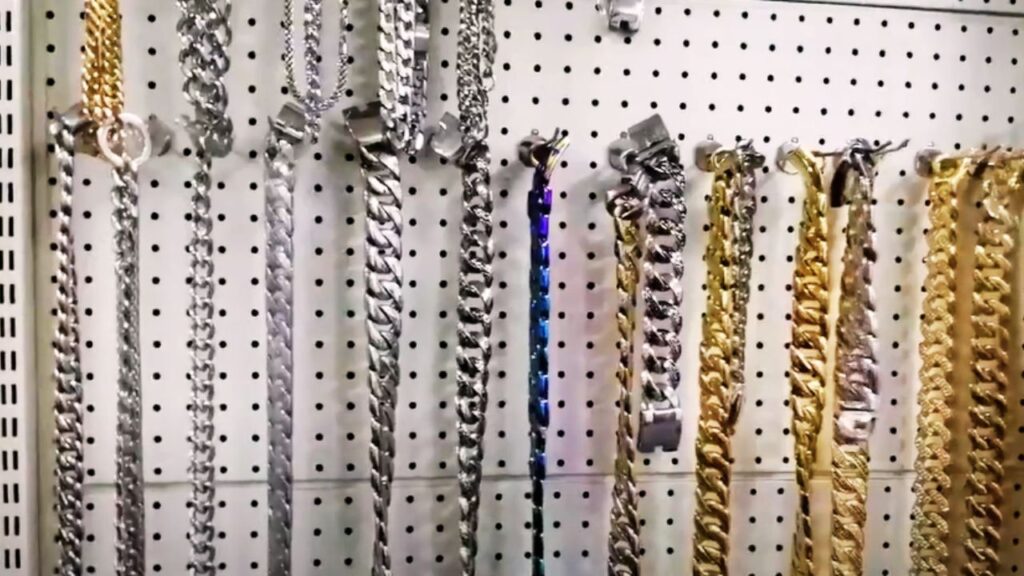
Advantages:
- Effective for Training: If your Belgian Shepherd has pulling issues or needs more structured training, chain collars can be an effective tool when used correctly. They provide quick feedback to the dog, helping to curb unwanted behavior.
Disadvantages:
- Risk of Injury: Chain collars, especially prong collars, can cause harm if used improperly. They should never be left on a dog unsupervised, as they can cause choking or neck injuries.
- Discomfort: These collars are not designed for daily use. They can be uncomfortable for the dog, especially during prolonged wear.
Wrapping Up:
For Belgian Shepherds, the correct collar size typically ranges between 18 to 24 inches, depending on the dog’s neck size, weight, and overall physique. Accurately measuring your dog’s neck and ensuring a proper fit is essential for their comfort, safety, and well-being. With the right collar type and size, you can provide your Belgian Shepherd with the support they need during daily walks and activities.
Whether you choose a flat collar, martingale, or harness, prioritizing fit and comfort will ensure your dog stays happy and secure. Hope so, now you know what is the correct collar size for a Belgian Shepherd. Learn if Dachshunds need special collars to provide the right support and comfort for their unique body shape.


